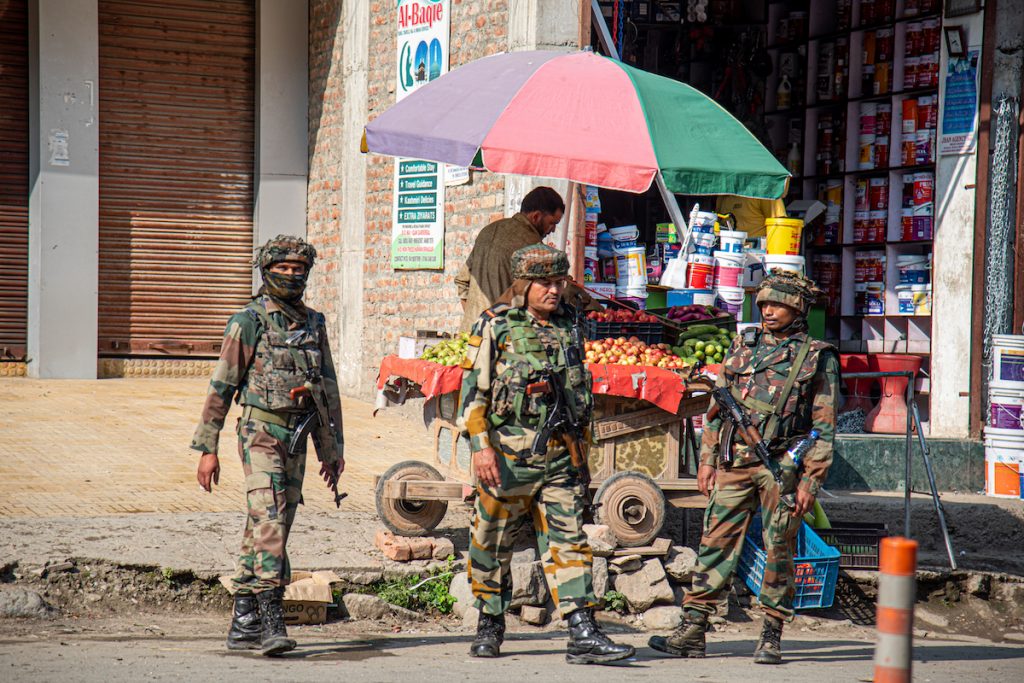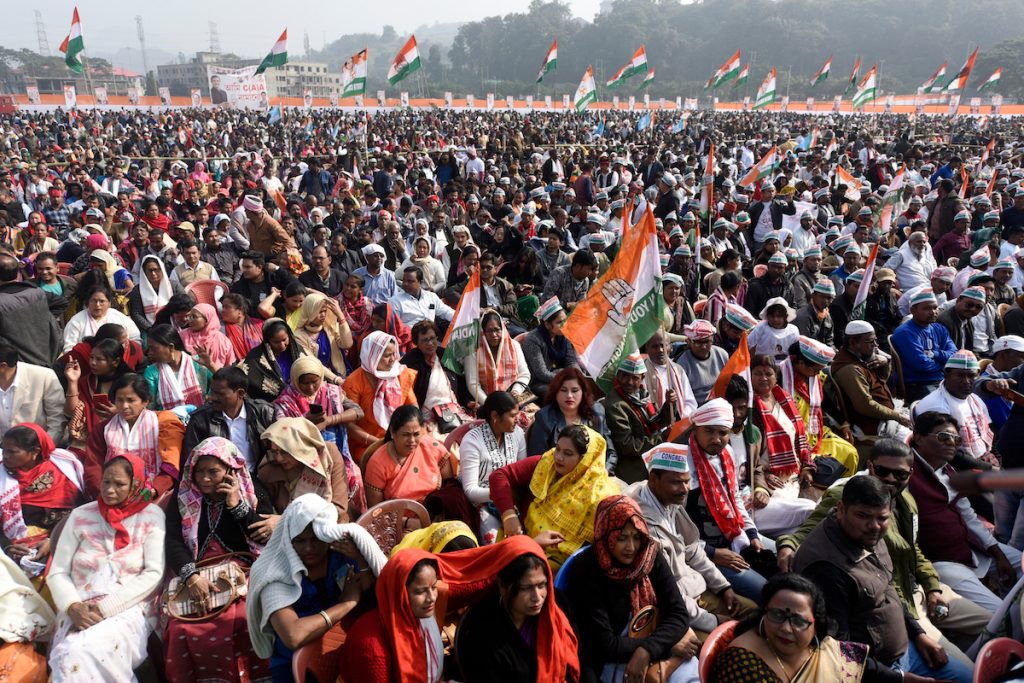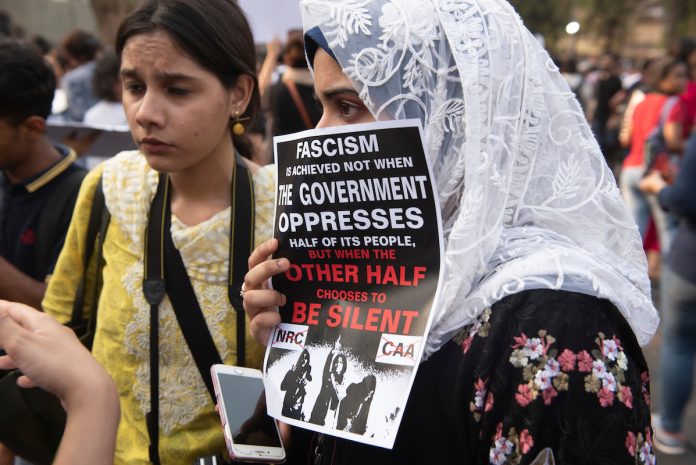India’s democracy rank slipped 10 notches to 51st place in 2019 — the worst-ever since the global Democracy Index was first published in 2006, according to The Economist Intelligence Unit. An “erosion of civil liberties” in the country was cited as the key factor for the downtrend.
India’s overall score went down from 7.23 out of ten in 2018 to 6.9 in 2019. The Democracy Index measures the present state of democracy for 165 independent states and two territories.
The latest edition of the index was published on Jan. 21, 2020.
The Democracy Index reflected on five aspects — electoral process and pluralism; the functioning of government; political participation; political culture; and civil liberties.
Countries are graded as one of four types of regimes: “full democracy” (scores greater than eight); “flawed democracy” (scores greater than six and less than or equal to eight); “hybrid regime” (scores greater than four and less than or equal to six; and “authoritarian regime” (scores less than or equal to four).
India was included in the “flawed democracy” category.
The primary reason cited for India’s democratic slide was an erosion of civil liberties, according to the Economist’s report, partially sparked by the passage of the Citizenship Amendment Act (CAA) in December, which also suggests that India’s democratic backsliding will persist in 2020.
The Economist’s report also referred to the situation in Jammu and Kashmir, where key opposition politicians, including three former chief ministers, are being detained more than five months after the federal government abrogated the special autonomous status of the country’s only Muslim-majority state, dividing it into two federally-administered territories.
In the aftermath, Jammu and Kashmir faced a stringent security lockdown that included the deployment of large numbers of soldiers and the suspension of mobile and broadband internet for over 100 days.

Earlier this month the Supreme Court reprimanded the federal government over the blocking of the internet, saying online access is fundamental to the right to free speech.
The top court also criticized the government over repeated use of Section 144 — a colonial-era law banning large gatherings which has been used by the government to break up protests.
The Economist also referenced widespread protests against the CAA, which provides a path to citizenship for Buddhist, Christian Hindu, Jain, Parsi, and Sikh practitioners, but not Muslims, fleeing persecution from Pakistan, Bangladesh, and Afghanistan.
Critics argue the law is discriminatory.
Adding fuel to the fire, the government approved funds for the National Population Register (NPR), a comprehensive identity database of everyone living in India. The NPR would require every person in the country to prove their citizenship.
“The new citizenship law has enraged the large Muslim population, stoked communal tensions and generated large protests in major cities,” the Economist’s report said.
Critics say the CAA, in conjunction with the NPR, are intended to target religious minorities, particularly Muslims who constitute 14 percent of India’s 1.3 billion population.
Several states, including Bengal and Kerala, have either put forward resolutions against the CAA and/or stopped all work on the NPR.
Responding to India’s downgrade in the Economist report, John Dayal, a human rights activist, said that it is obvious that the Sangh Parivar (the umbrella term for a collection of Hindu nationalist organizations) has not given up its strategy of enforcing majority rule in India.

“It is unfortunate that the apparatus of state, including local governments, junior courts and above all, the police force are either willingly or under duress siding with the assailants, and against the victims,” he said in reference to reported hate crimes against religious minorities.
“It is imperative that India’s secular founding principles be reinforced in those who join the police, the army, and the bureaucracy. There is no other way to protect them from armed, trained, and motivated political elements hell-bent on creating a Hindutva Rashtra (Hindu nationalist India).”
Anto Akkara, a Catholic journalist, told LiCAS.news that the Economist study accurately captured the state of India’s democracy.
“The Economist Intelligence Unit report is based on 2019. If the present state of civil liberties was taken into account, [the score] would be much lower,” he said.
He said one needed look no further than social media to see evidence of that reality.
“Despite police officials denying firing at peaceful protesters across the country in the aftermath of the CAA, the internet is rife with [evidence of] police shooting demonstrators, even with handguns; setting fire to public buses and then blaming the ‘violent’ protesters in Delhi; stealing blankets from those protesting in the open air at night in Uttar Pradesh; and ransacking hospital rooms while looking for protesters in Mangalore,” he said.
From top to bottom
Meanwhile, China’s score fell to 2.26 in the 2019 index, putting the country in 153rd place, close to the bottom of the global rankings.
“Over the past year, discrimination against minorities, especially in the north-western region of Xinjiang, has intensified. Digital surveillance of the population continued apace in 2019, representing a further constraint on individual freedoms,” the report said.
Among other emerging economies, Brazil was positioned 52nd with a score of 6.86, while Russia ranked 134th with a score of 3.11.
Meanwhile, Pakistan was ranked 108th with a score of 4.25, Sri Lanka was in 69th place with a score of 6.27, and Bangladesh was in 80th place with a score of 5.88.
Norway topped the list, followed by Iceland and Sweden. Other countries in the top 10 were New Zealand in fourth place, Finland (5th), Ireland (6th), Denmark (7th), Canada (8th), Australia (9th) and Switzerland (10th).
North Korea was at the bottom of the global ranking at 167th place.









